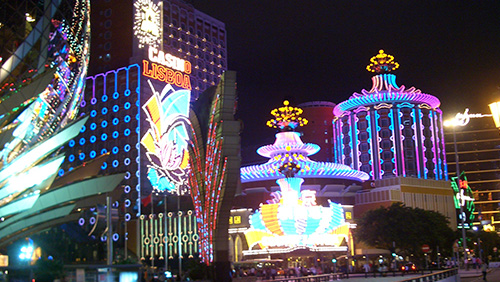South Shore Holdings had big plans for The 13 in Macau. The hotel would ultimately become a major resort in the city, complete with a fashionable casino and all the trimmings. However, it could never reach the point of being able to take the operations to the next level and has reported net losses in each of the past two years. Unable to reach its goals, South Shore told the Hong Kong Stock Exchange earlier this month that it would try to sell its 60% stake in the venue, but this is going to be harder than it may have expected. At an average of just 16 rooms booked per night, finding someone willing to purchase the fledgling business is going to be next to impossible unless South Shore is willing to take a loss.
 The 13 only has an occupancy rate of 8% for its 201 villas, according to its year-end financial report. The average nightly rate is $637, resulting in a gross daily income of just over $10,000. With a build cost of $1.6 billion, trying to cover that investment is not feasible with the dismal occupancy. The low rate also means that the chances of finding a casino partner willing to get involved are slim to none.
The 13 only has an occupancy rate of 8% for its 201 villas, according to its year-end financial report. The average nightly rate is $637, resulting in a gross daily income of just over $10,000. With a build cost of $1.6 billion, trying to cover that investment is not feasible with the dismal occupancy. The low rate also means that the chances of finding a casino partner willing to get involved are slim to none.
In its year-end filing, South Shore explains, The entering into of a formal agreement with any concessionaire or sub-concessionaire as operator in respect of any gaming operations in The 13 Hotel continues to remain subject to, amongst other things, the operator making an application and obtaining approval from the Macau Government. Given that no such formal agreement has been entered into, a significant reduction of anticipated occupancy and room rates, as well as forecast revenue, has been made in our business plans.”
Compared to other properties, The 13’s price tag was way out in left field. Each villa was built at a cost of about $8 million with no other amenities on tap. In contrast, Wynn Palace and MGM Cotai, both of which are newer venues, have accommodations that ran approximately $2.5 million – and both properties have more services and options to offer guests.
Margaret Ho of Bloomberg points out, “If the property operates as a standalone hotel, it may be difficult to justify room rates to match its high-end focus. Without a casino, it would be nearly impossible to have gamblers book rooms separately with them.”
So now, The 13 is in a catch-22. It cannot get a casino partner without higher occupancy and cannot get higher occupancy without a casino. The issues plaguing the arrangement are extremely noticeable in South Shore’s trading price. In 2014, the company was enjoying a stock price of $14. Now, the price sits at just $0.01.